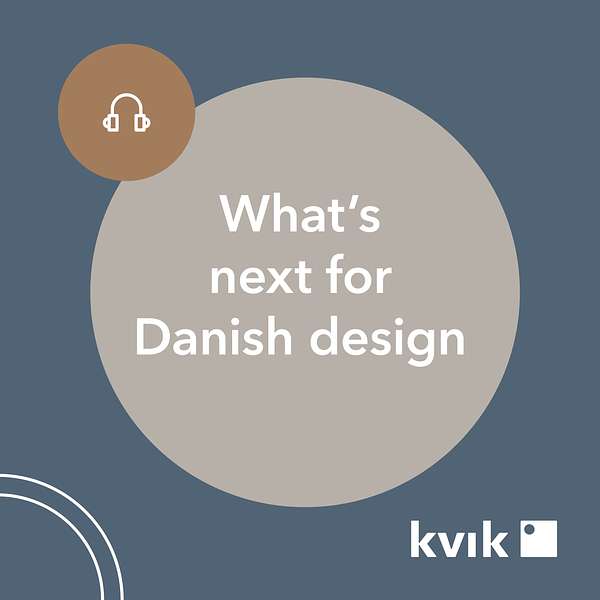
The Sociable Kitchen® by Kvik
As a company that makes and sells Danish design kitchens in 180+ stores in 13 countries, we think a lot about Danish design. In our first series, we’re going to be taking a closer look at Danish design - talking to designers, artists, activists and thinkers who will help us figure out where Danish design has been and where it’s headed.
So, if you’re curious about Danish design, come along for the ride.
Our feed also contains stories from some of our talented franchisees around Europe. If you're looking for a franchise opportunity with great products and lots of support, have a listen and get inspired.
The Sociable Kitchen® by Kvik
7 — What's next for Danish design?
In this final episode of The Sociable Kitchen® podcast's first series on Danish design, host Julie Broberg explores the evolving landscape of Danish design, from its mid-20th century roots to its modern-day ethos. Central to this evolution is the Danish design process of "tænke, tegne, teste" (think, draw, test), a cycle emphasising continuous iteration and improvement.
The Confederation of Danish Industry proposes a new design policy, moving beyond the traditional focus on objects like chairs and lamps to a broader view of design as a collaborative process. This approach involves not just designers but a diverse team of experts, addressing complex challenges with robust, sustainable solutions.
Designer Lærke Ryom, a recent graduate, exemplifies this new direction. She discusses her hands-on approach to repurposing materials, such as transforming discarded jeans into upholstery for chairs and using offcuts from production processes for new creations. This reimagining of materials is part of a larger shift towards sustainability in Danish design, acknowledging the significant environmental impact of design decisions.
The podcast also delves into how Danish design culture, characterised by flat organisational structures and a collaborative ethos, is uniquely suited to tackle modern challenges. This culture encourages a multidisciplinary approach, where everyone from CEOs to interns contributes ideas and expertise.
In conclusion, as Danish design moves forward, it embraces a holistic, user-centric approach, integrating aesthetics, functionality, and environmental responsibility.
Read more at kvik.com/podcast.